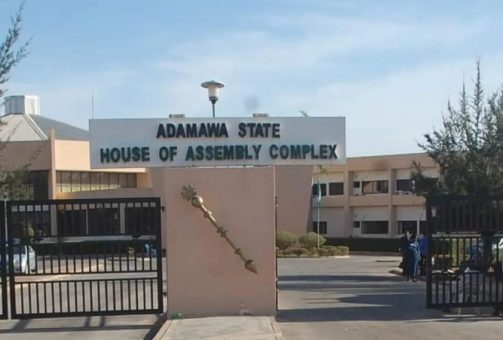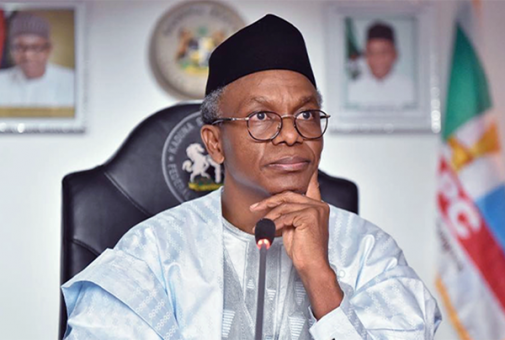
Alhaji Aliko Dangote, President and CEO of Dangote Group, has urged the Nigerian government to completely eliminate fuel subsidies. He believes that doing so would clarify the country’s true petrol consumption levels. With ownership of two oil blocks set to begin production next month and his $20 billion mega refinery in Lagos capable of refining 650,000 barrels of crude oil daily, Dangote argues that these developments could alleviate pressure on the naira. In a recent interview with Bloomberg Television in New York, he emphasized that now is the ideal time to end fuel subsidies.
He highlighted that eliminating petrol imports could significantly alleviate currency pressures in Nigeria. He emphasized the sensitivity of subsidy issues, stating, “When you subsidize something, it leads to inflated prices, causing the government to pay more than necessary. Now is the right time to eliminate subsidies.”
Dangote added that his refinery will address many challenges, helping to clarify Nigeria’s actual fuel consumption. “Currently, there are varying claims, with some saying consumption is around 60 million liters of gasoline per day,” he noted.
Alhaji Aliko Dangote expressed confidence that ending fuel subsidies could lead to significant savings for the Nigerian government. He pointed out that with the refinery’s production, fuel consumption can be accurately tracked, noting, “We will put a tracker on trucks and ships to ensure they are taking oil within Nigeria.”
Reflecting on the challenges faced during the refinery’s development, which included a five-year delay and a $2.4 billion loan, Dangote expressed pride in the project’s completion. He explained that while the refinery can produce, export, and sell locally, profitability is essential for the $20 billion investment.
“The removal of subsidies is ultimately a government decision,” he stated, emphasizing the need for a trade-off from the government. “At the end of the day, this subsidy will have to go.”
President Bola Tinubu initially removed fuel subsidies upon taking office in May 2023, leading to a cost-of-living crisis and protests. Although the subsidy was quickly reinstated due to rising inflation, the government made further moves in early September by easing the gasoline price cap, keeping it below market levels.
Until Dangote’s refinery became operational, Nigeria was entirely reliant on imported petroleum products. The country is now cautiously working towards ending its costly fuel subsidies, which amounted to $10 billion in 2022.
Alhaji Aliko Dangote highlighted the benefits of ending gasoline imports, stating that such a move could significantly ease currency pressures in Nigeria. He pointed out that the naira has depreciated by around 70% against the dollar since the government relaxed the currency’s artificial peg last year. The scarcity of U.S. dollars in the foreign exchange market further exacerbates this issue, particularly as Nigeria relies heavily on imported gasoline, consuming about 40% of its foreign exchange.
Dangote’s refinery, which began supplying gasoline to the state-owned Nigerian National Petroleum Company (NNPC) on September 15, aims to help stabilize the naira. He explained that fuel from his refinery is priced lower than imported gasoline, despite the NNPC applying a uniform pricing structure for all products.
Regarding a recent pricing disagreement, Dangote clarified, “There wasn’t really a disagreement. NNPC purchased gasoline from us at the international price, which was cheaper than the 800,000 metric tons of imported fuel they also bought.” This underscores the potential for domestic production to enhance Nigeria’s fuel supply and mitigate currency challenges.
Alhaji Aliko Dangote stated that discussions are ongoing to finalize a robust agreement with the Nigerian National Petroleum Company Limited (NNPCL) that aims for a mutually beneficial outcome. He highlighted that the agreement will enhance energy security, with NNPCL set to supply 12 million barrels of crude oil in October, averaging about 390,000 barrels per day, to be refined into gasoline, diesel, and aviation fuel.
Additionally, Dangote confirmed his ownership of two oil blocks in the upstream sector, which are expected to begin production next month.
Federal Government Initiatives for Tanker Infrastructure and Road Development
The Federal Government has announced plans to provide land for entities interested in constructing a large park for tankers transporting petrol and other products from Dangote’s refinery. This decision follows a recent inspection by Minister of Works, Dave Umahi, who expressed concerns about over 3,000 fuel tankers queuing on a new concrete pavement road. Umahi pointed out that, despite the concrete surface, the road was not designed to support such static loads and could soon deteriorate, similar to the heavily trafficked Apapa road.
After Monday’s Federal Executive Council meeting at the Aso Rock Villa in Abuja, Minister of Works Dave Umahi addressed State House Correspondents regarding the urgent need for infrastructure improvements around the Dangote refinery. He noted that over 3,000 fuel trucks were queuing on a newly constructed road designed for lighter traffic, raising concerns about potential damage similar to what occurred on the Apapa road.
Umahi announced that the council approved a plan for the Federal Government to offer land for concession to build a dedicated tanker park. This park will be toll-operated, allowing tankers to park safely without stressing the roadway. He emphasized that the pavement in such a park would be engineered differently from standard road surfaces.
In addition to the tanker park, Umahi shared details of several road projects approved by the council. These include:
- A new contract for the rehabilitation of the Maraban-Kankara-Funtua Road in Katsina State.
- The construction of a 258-kilometer, three-lane carriageway as part of the Sokoto-Badagry superhighway in Kebbi State, which will utilize continuous reinforced concrete pavement.
- The dualization of the Afikpo-Uturu-Okiwe Road spanning Ebonyi, Abia, and Imo States.
- Funding approval for the Bodo-Bonny road project in Rivers State, increasing the budget to N280 billion.
- Emergency works on the Third Mainland Bridge, which will also extend to Falamo and Queens Drive, featuring solar-powered lights and security enhancements for rapid response.
These initiatives aim to improve infrastructure and traffic management in the region, addressing the growing demands of fuel transportation and overall road safety.
The Federal Executive Council approved several key contracts, including a N158 billion project for service lanes at Lekki Port, which will connect Epe to the Shagamu-Benin Expressway. Additionally, a N740.79 billion contract for the Abuja-Kaduna-Zaria-Kano Road was re-scoped to include solar lighting, with a completion timeline of 14 months, awarded to Julius Berger.
Minister of Works Dave Umahi also identified approximately 14 road projects and bridges that have been affected by flooding, highlighting specific roads such as the Ado-Ekiti-Afe Babalola in Ekiti State and the Lafia-Shendam Road in Plateau State. These initiatives aim to enhance infrastructure resilience and improve connectivity in the affected regions.





